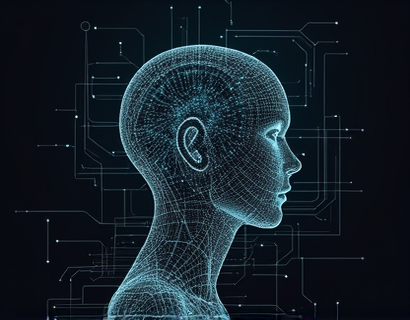Maximize Your Productivity with Intelligent AI Task Management Solutions
In the fast-paced world of today, productivity has become a crucial factor for both personal success and professional growth. The integration of Artificial Intelligence (AI) into task management solutions represents a significant leap forward in how we handle our daily activities. AI-driven intelligent agents are transforming the way we manage personal and business tasks, offering a level of efficiency and organization that was previously unattainable. These advanced systems not only streamline operations but also empower users to focus on high-priority activities, thereby maximizing their potential and redefining the landscape of task management.
The Evolution of Task Management
The concept of task management has evolved significantly over the years. From simple to-do lists to complex project management tools, the methods we use to organize our tasks have adapted to our changing needs. However, the introduction of AI into this domain marks a new era. Traditional task management tools often require manual input and oversight, which can be time-consuming and prone to human error. AI task management solutions, on the other hand, leverage machine learning algorithms to understand, predict, and automate tasks with minimal human intervention.
How AI Task Management Works
AI task management solutions operate by first analyzing user behavior and preferences. Through machine learning, these systems learn the patterns and habits of the user, allowing them to anticipate needs and suggest actions proactively. For instance, an AI agent can recognize that a user typically sends a weekly report on Fridays and automatically prepare the necessary data and drafts in the background. This not only saves time but also reduces the cognitive load on the user, allowing them to focus on more strategic tasks.
Moreover, AI agents can integrate with various applications and services, creating a seamless workflow. They can pull data from calendars, emails, and other productivity tools to create a comprehensive view of the user's tasks and deadlines. This integration ensures that all relevant information is centralized, making it easier to manage and prioritize tasks effectively.
Benefits of AI Task Management
The benefits of adopting AI task management solutions are numerous. Firstly, they significantly enhance productivity by automating routine and repetitive tasks. This automation frees up valuable time, allowing users to concentrate on high-value activities that require human creativity and critical thinking. For business professionals, this means more time to strategize, innovate, and drive growth.
Another key benefit is improved accuracy and consistency. AI systems are less likely to make errors compared to manual processes, ensuring that tasks are completed correctly and on time. This reliability is particularly crucial in business environments where deadlines and precision are paramount. Additionally, AI task management solutions provide real-time insights and analytics, helping users and organizations to make data-driven decisions and optimize their workflows continuously.
Personal Productivity Enhancement
For individuals, AI task management can be a game-changer. Whether you are a student managing assignments, a professional handling multiple projects, or someone balancing work and family responsibilities, these tools can help you stay organized and on top of your tasks. AI agents can remind you of upcoming deadlines, suggest optimal times for task execution based on your productivity patterns, and even delegate tasks to team members if you are part of a collaborative project.
One of the most significant advantages for personal use is the reduction of stress and anxiety associated with task overload. By offloading the responsibility of remembering and managing tasks to an AI agent, individuals can enjoy a clearer mind and a more relaxed state of being. This mental clarity can lead to better decision-making and a higher quality of life.
Business Productivity Optimization
In a business context, AI task management solutions can revolutionize operations and drive significant improvements. For managers, these tools provide a holistic view of team performance and project progress, enabling better resource allocation and task assignment. AI agents can identify bottlenecks and suggest optimizations, ensuring that projects stay on track and meet their objectives.
Moreover, AI-driven task management can enhance collaboration within teams. By centralizing task information and facilitating seamless communication, these solutions foster a more cohesive and efficient work environment. Employees can easily track their responsibilities, collaborate on tasks, and receive updates in real-time, reducing the need for constant meetings and emails.
Case Studies and Real-World Applications
Several organizations have already embraced AI task management solutions and seen remarkable results. A mid-sized marketing firm, for example, implemented an AI-powered task management tool to streamline their campaign planning process. The tool automatically assigned tasks based on team members' availability and expertise, resulting in a 30% reduction in project completion time. The firm's marketing team reported feeling less overwhelmed and more focused on creative aspects of their work.
In the healthcare sector, a large hospital adopted an AI task management system to optimize patient care and administrative tasks. The system automated routine tasks such as appointment scheduling and medication reminders, allowing medical staff to dedicate more time to patient care. The hospital observed a 25% increase in patient satisfaction and a significant reduction in operational costs.
Challenges and Considerations
While the benefits of AI task management are clear, there are also challenges and considerations to keep in mind. One of the primary concerns is the initial setup and integration with existing systems. Users need to ensure that their AI agent can seamlessly connect with their current tools and workflows. This may require some technical expertise or support from the service provider.
Another consideration is data privacy and security. AI agents handle sensitive information, and it is crucial to choose a solution that adheres to strict data protection standards. Users should thoroughly research the security measures in place and ensure compliance with relevant regulations.
Additionally, there is a learning curve associated with adopting new technology. Users may need time to familiarize themselves with the AI agent's features and capabilities. Providers often offer training and support to ease this transition, but it is essential to allocate time for learning and adaptation.
Future Trends in AI Task Management
The future of AI task management is promising, with several trends on the horizon. One such trend is the integration of natural language processing (NLP) to enable more intuitive and conversational interactions with AI agents. Users will be able to manage their tasks using voice commands or natural language inputs, making the experience even more user-friendly.
Another exciting development is the incorporation of emotional intelligence into AI agents. By understanding and responding to the user's emotional state, these agents can provide more personalized and empathetic support. This could be particularly beneficial in high-stress environments, such as customer service or emergency response.
Furthermore, the rise of edge computing will enable AI task management solutions to operate more efficiently, with faster processing and reduced latency. This will be especially advantageous for users in remote locations or those requiring real-time decision-making.
Conclusion
AI task management solutions represent a significant advancement in productivity tools, offering unparalleled benefits for both individuals and businesses. By automating routine tasks, providing real-time insights, and enhancing collaboration, these intelligent agents help users and organizations maximize their potential and achieve their goals more effectively. As the technology continues to evolve, the future of task management looks brighter and more efficient than ever before. Embracing AI task management is not just about staying current; it's about redefining what's possible in the realm of productivity.











































